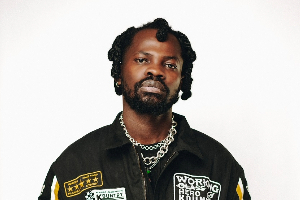Oral healthcare is a basic requirement for healthy living. It is a fundamental contributor to general health. However, majority of the world’s population continue to suffer from dental problems. Oral health is the single greatest unmet health need especially for children which makes dental caries the most chronic childhood disease.
Ghana, a country with a population of over 24 million, has only two dental schools; one situated in accra(ugds) and the other one in Kumasi(knust ds). Each year less than 40 dentists are produced by these two schools combined. Currently, the number of dentists in the country is 270. This puts the doctor to patient ratio at about 1:88,000 which is woefully inadequate as it falls below the WHO standard of 1:9000.
One major challenge that the Ghana health service and the ministry of health face is their inability to post and retain health workers in certain parts of the country. It is disheartening to note that 80% of dentists reside in Kumasi and Accra but not a single dentist in the northern part of the country. What is the big deal about losing one or two teeth from a set of 32 especially if it isn’t a front tooth, some may quiz? Research has indicated that poor oral care that leads to chronic periodontal disease (gum infections) can increase a person’s risk of heart diseases particularly hypertension, stroke, lung infections and diabetes. A pregnant woman suffering from chronic periodontal disease has greater risk of having a preterm low birth weight child. These children hardly survive.
Fortunately, the two most common dental diseases are highly preventable. Both dental caries (tooth decay) and periodontal diseases are caused by dental plaque. Dental plaque formation is a natural process that goes on in every person’s mouth. After cleaning your teeth, wipe your tongue over the surfaces of your teeth and they feel cleaned. Close your mouth for just 60 seconds and repeat the wiping of your tongue over your teeth. This time they feel slippery. The slippery substance is the dental plaque. It is a combination of saliva and bacteria on your teeth and later food debris. Effective plaque control by regular cleaning is the key to prevention of dental caries and periodontal disease.
Proper cleaning twice daily is enough to eliminate tooth decay and gum infections. It doesn’t matter what item you use in cleaning your teeth; toothbrush, chew stick, chew sponge or plantain stalk are all very good mechanical devices for cleaning the mouth. However, addition of a little toothpaste to the chew stick, chew sponge or the plantain stalk gives it the additional efficiency of topical fluoride, calcium and phosphate application. It is important to add that cleaning the mouth at night is more important than cleaning in the morning.
In spite of the fact that effective tooth cleaning, at least twice daily, is effective in plaque control and subsequently in the prevention of dental caries and periodontal diseases, majority of Ghanaians still suffer from dental caries and periodontal diseases.
Did you know that the chew stick or the toothbrush that we use is a tool and just like any other tool when not used properly will cause more harm than good? How do you clean your teeth and for how long? What about the kind of food we eat: how does it affect our teeth? SAVE A Smile-Gh(NGO) believes the most immediate and radical step towards addressing the dental needs of Ghanaians is through the empowerment of people, especially those living in underserved communities, with the necessary knowledge, skills and frame of mind to forestal preventable dental diseases. SAVE A Smile-Gh announced its presence in the Upper East Region in January, 2013, where the lives of over 7000 school-going people in communities like Bawku, Pusiga and Garu-Tempane were touched. By engaging students on the systemic effects of periodontal diseases, we stressed on the need for proper oral hygiene and how to achieve it using available tooth cleaning materials and employing the appropriate cleaning techniques.
Free oral screening was undertaken in four primary schools namely Aminiya school, Gingande school, st. Anthony school and Sumaduri school. We distributed free flodent toothpastes and toothbrushes to the target population. Most school children especially those in the kindergarten have never had their teeth cleaned before, we observed. They have never used a toothbrush brush before. Their parents or guardians have essentially neglected their ward’s dental hygiene predisposing the children to dental caries and periodontal diseases.
The challenge of inadequacy in dental healthcare delivery is a global one. 75% of the world’s population lives without access to a dentist (BRIDGE2AID) but that does not warrant the inefficiencies that we face in health service delivery in this country. The ministry of health and the Ghana health service should come out with a policy that would require dentists to be posted to certain parts of the country for a specified period of time and with a special package. There is a huge gap in knowledge as far as oral hygiene principles are concerned in these communities. Most people do not clean their teeth at all, simply because they don’t know why they should clean. The government, together with other stakeholders should establish a school-based oral health program that would impart in school children the necessary oral hygiene practices and skills especially during their early years to reduce the incidence of caries and periodontal diseases.
Also, community oral education programs should be initiated to afford people the opportunity to learn directly from oral care professionals. This would ensure community participation as individuals may have the opportunity to ask questions for clarification. In the same vein, a lot of people may benefit as not all Ghanaians have access to televisions and other media platforms to access oral hygiene advertisements that are played.
Finally, training of dentists to serve the needs of the people in the north would be a step in the right direction. The UDS should start looking at ways of establishing a dental school to add to the number of dentists produced each year in this country. This, I believe, will not only produce dentists for the north but the entire country.
A Ghana without dental pain is SAVE A Smile-Gh’s ultimate goal.
By ASOMA AWUDU (CEO & FOUNDER, SAVE A Smile-Gh)
Opinions of Saturday, 23 March 2013
Columnist: Awudu, Asoma
Healthy mouth; a window to healthy life.
Business













